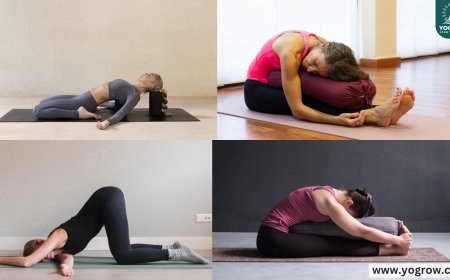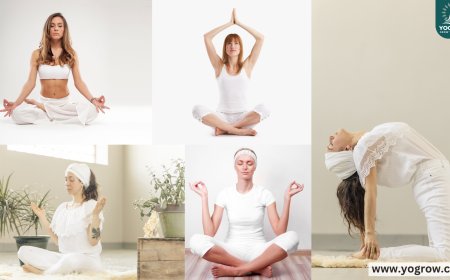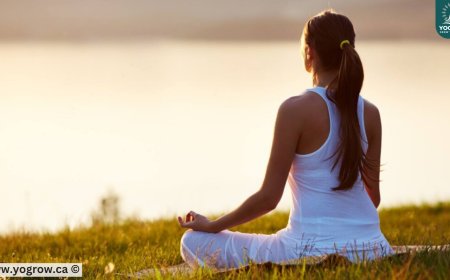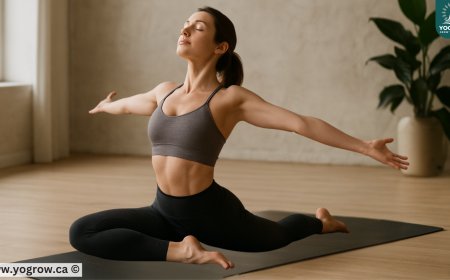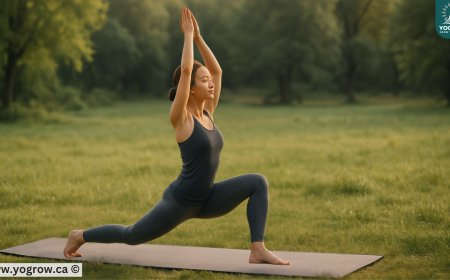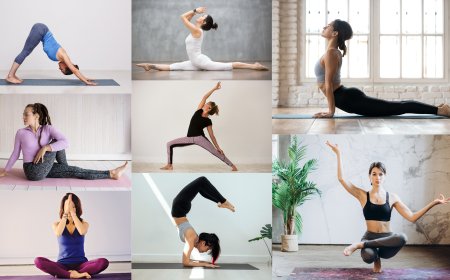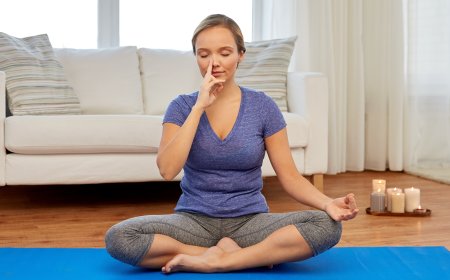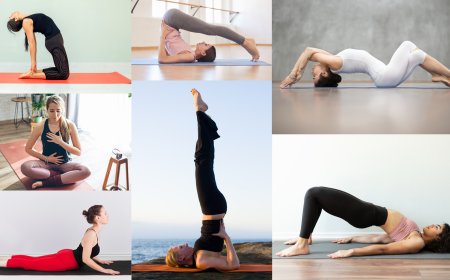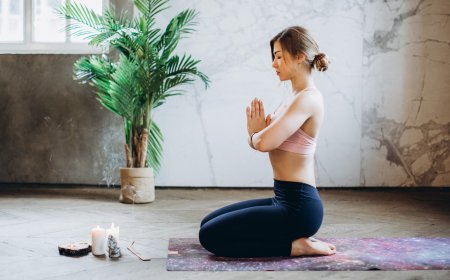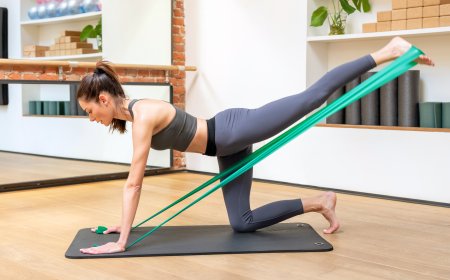The Powerful Benefits of Yoga for Mind and Body Health!
Discover the benefits of yoga for mind and body. Improve flexibility, reduce stress, boost mental clarity, and enhance overall well-being with yoga.
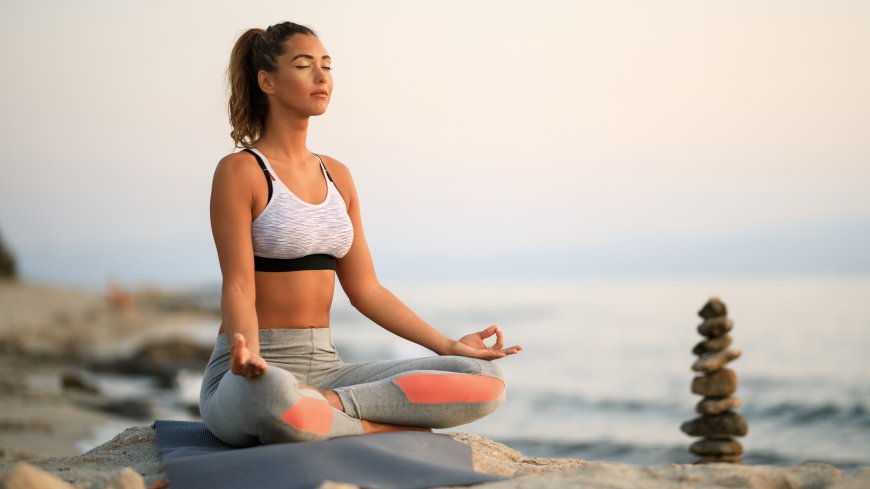
Yoga is more than just a fitness trend—it’s a holistic practice that nurtures both the mind and body. In today’s fast-paced world, stress and physical ailments have become commonplace, making yoga an essential tool for maintaining overall well-being. From enhancing flexibility to promoting mental clarity, yoga offers numerous benefits that can transform lives.
Benefits of Yoga for Mind and Body
1. Improves Physical Flexibility and Strength
One of the most well-known benefits of yoga is its ability to improve flexibility and strength. Regular practice helps stretch muscles, increase mobility, and prevent injuries. Yoga poses like Downward Dog and Warrior Pose build core strength while enhancing balance and posture.
2. Reduces Stress and Anxiety
Yoga incorporates breathing techniques and meditation that activate the parasympathetic nervous system, helping to lower stress levels. Studies show that practicing yoga reduces cortisol, the primary stress hormone, leading to improved emotional stability and a sense of calmness.
3. Enhances Mental Clarity and Focus
Through mindfulness and meditation, yoga sharpens cognitive function and improves concentration. By focusing on breath and movement, practitioners cultivate greater awareness, reducing mental clutter and enhancing decision-making skills.
4. Supports Heart Health
Yoga has been linked to improved cardiovascular health by lowering blood pressure, reducing cholesterol levels, and enhancing circulation. The calming effects of yoga help regulate heart rate and reduce the risk of heart disease.
5. Boosts Immune System Function
The combination of movement, deep breathing, and relaxation techniques in yoga enhances the immune system. By reducing inflammation and supporting lymphatic drainage, yoga strengthens the body’s ability to fight infections and diseases.
Practical Steps to Start Your Yoga Journey
1. Choose the Right Yoga Style
Beginners can start with gentle styles like Hatha or Restorative yoga, while those looking for a more intense workout can try Vinyasa or Ashtanga yoga.
2. Establish a Consistent Routine
Set aside at least 15–30 minutes daily to practice yoga. Consistency is key to experiencing long-term benefits.
3. Focus on Proper Breathing Techniques
Breathing exercises, such as Pranayama, play a crucial role in yoga. Learning to control your breath enhances relaxation and improves oxygen flow to the brain and muscles.
4. Listen to Your Body
Avoid pushing yourself too hard. Progress gradually and modify poses as needed to prevent strain or injury.
5. Incorporate Meditation and Mindfulness
Adding meditation to your yoga practice enhances mental clarity and emotional stability. Start with short sessions and gradually increase the duration.
Common Mistakes to Avoid in Yoga
1. Skipping Warm-Ups
Many people jump into poses without proper warm-ups, increasing the risk of injuries. Always begin with light stretching to prepare your body.
2. Holding Your Breath
Breathing is fundamental in yoga. Holding your breath can lead to tension and reduced benefits. Focus on deep, rhythmic breathing throughout your practice.
3. Overstretching
Pushing too hard can cause muscle strains. Progress gradually and respect your body's limits.
4. Practicing Inconsistently
Irregular practice can slow progress. Aim for a consistent schedule, even if it’s just a few minutes daily.
FAQs About Yoga
1. What are the mental health benefits of yoga?
Yoga reduces stress, anxiety, and depression while improving focus, emotional resilience, and overall mental well-being.
2. Can yoga help with weight loss?
Yes, certain yoga styles like Vinyasa and Power Yoga provide a full-body workout that helps burn calories and tone muscles.
3. How often should I practice yoga to see results?
Practicing yoga at least 3-5 times a week can yield noticeable improvements in flexibility, strength, and mental clarity.
4. Do I need to be flexible to start yoga?
No, yoga is for everyone. Flexibility improves over time with consistent practice.
5. What is the best time of day to do yoga?
Morning yoga energizes the body, while evening yoga promotes relaxation. Choose a time that fits your schedule and personal preference.
Conclusion
Yoga is a powerful practice that enhances both physical and mental well-being. From improving flexibility to reducing stress, its benefits are vast and accessible to everyone. Start your yoga journey today—whether at home or in a studio—and experience the transformation firsthand. Want to learn more? Subscribe to our blog for expert tips and guided yoga sessions!
What's Your Reaction?
 Like
0
Like
0
 Dislike
0
Dislike
0
 Love
0
Love
0
 Funny
0
Funny
0
 Angry
0
Angry
0
 Sad
0
Sad
0
 Wow
0
Wow
0
